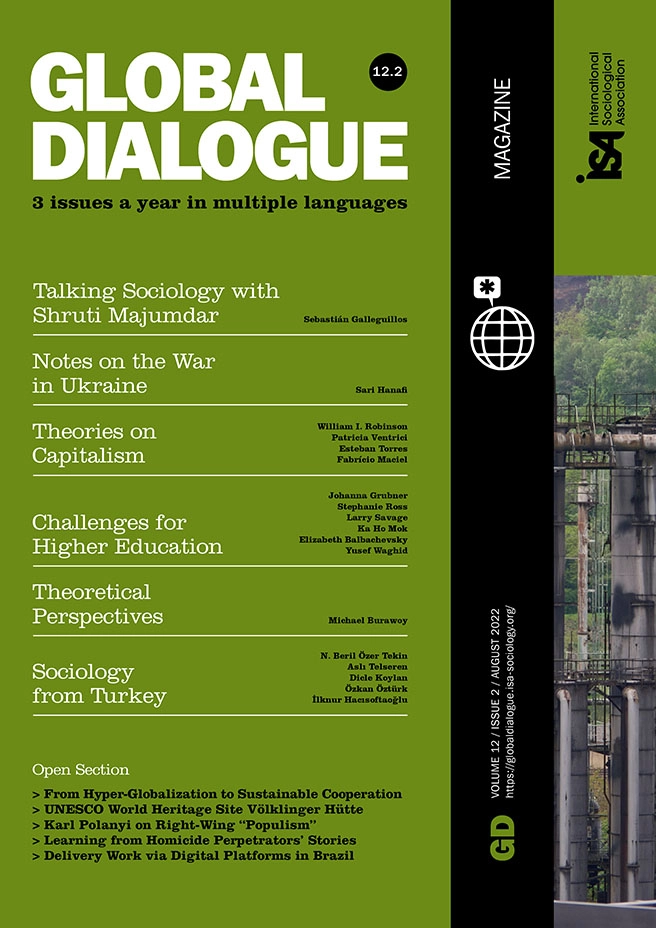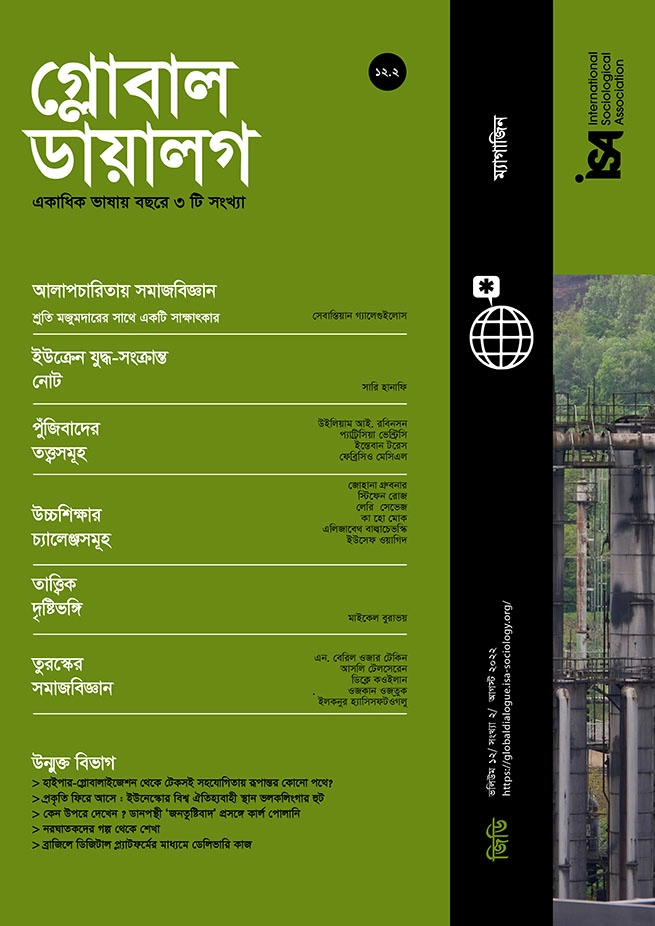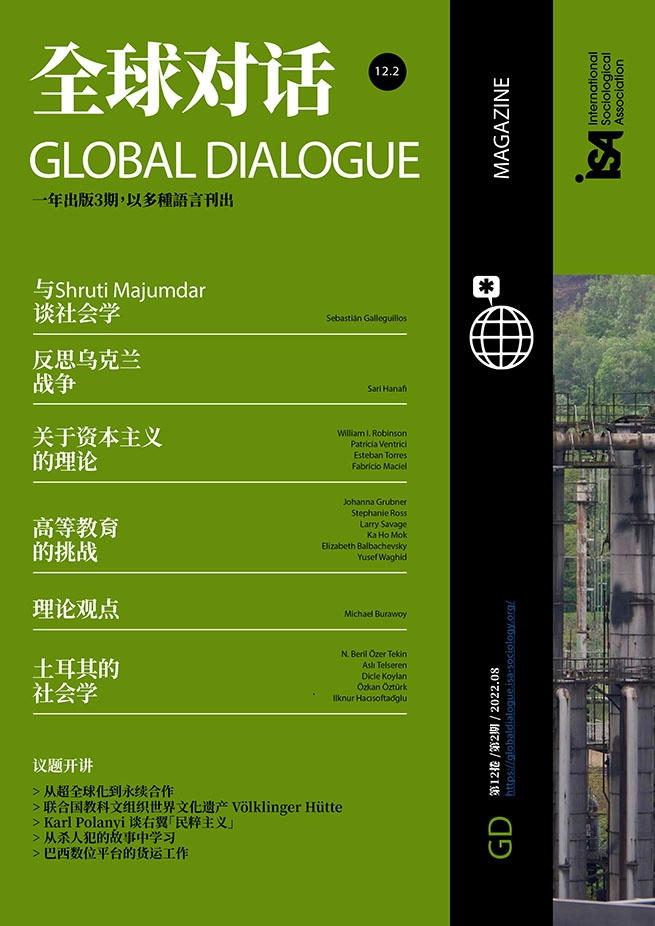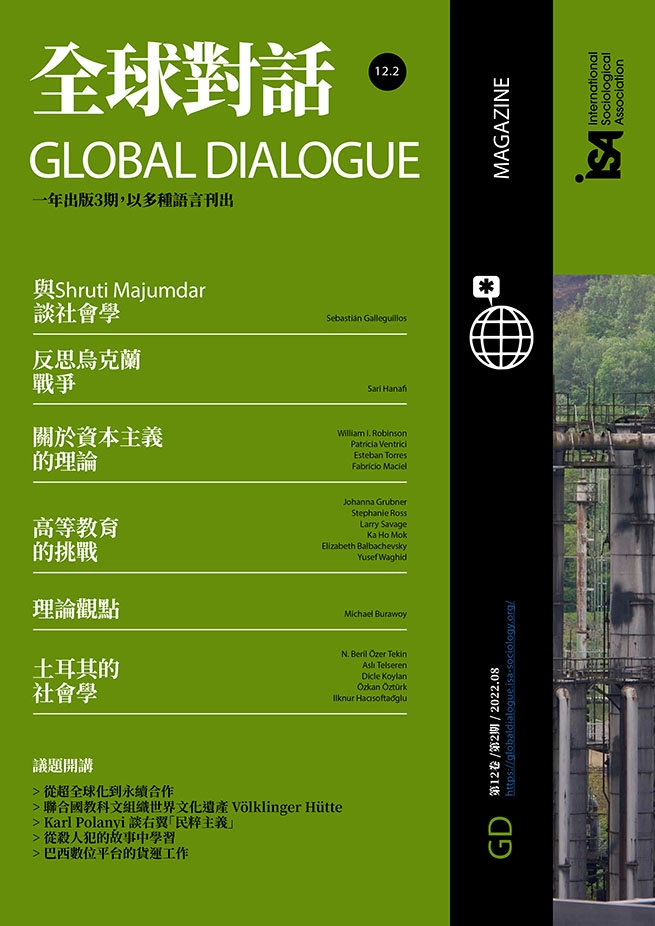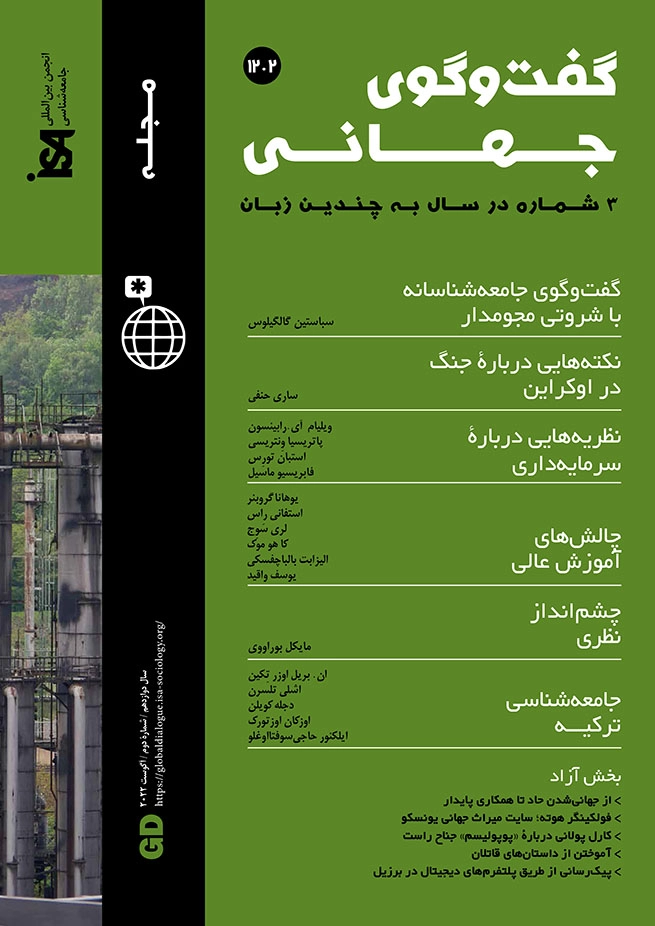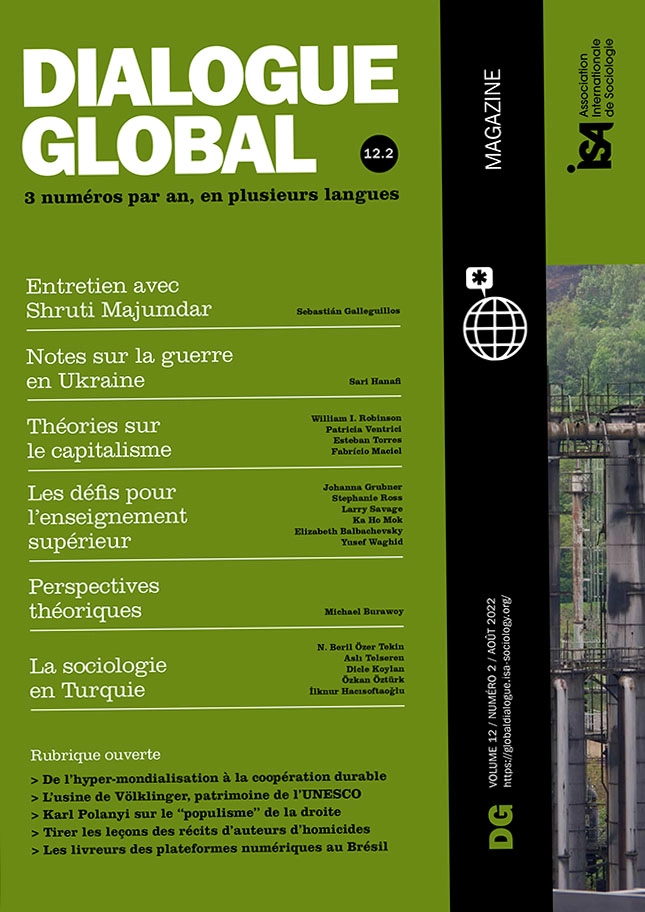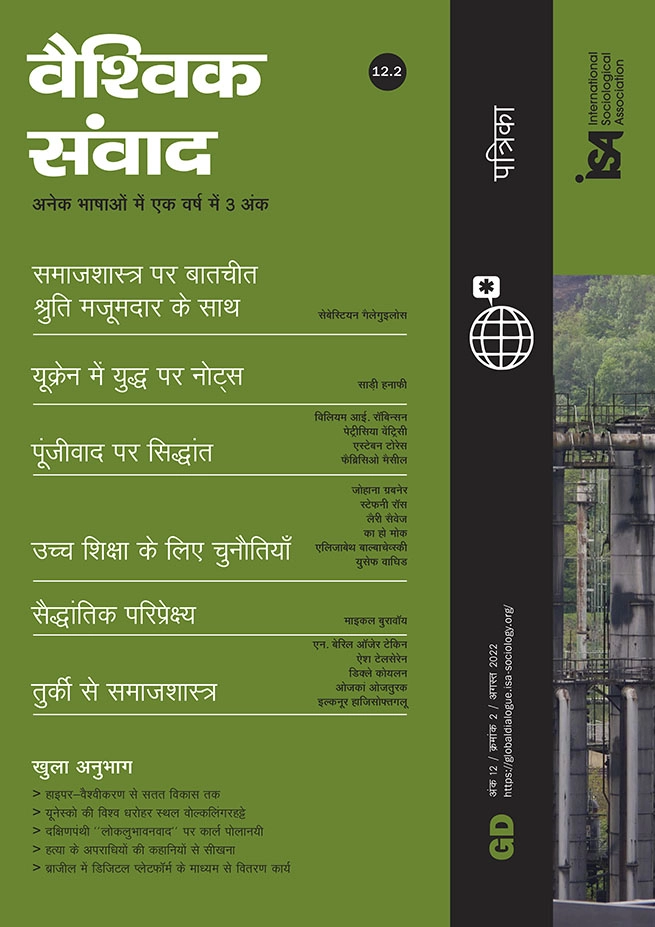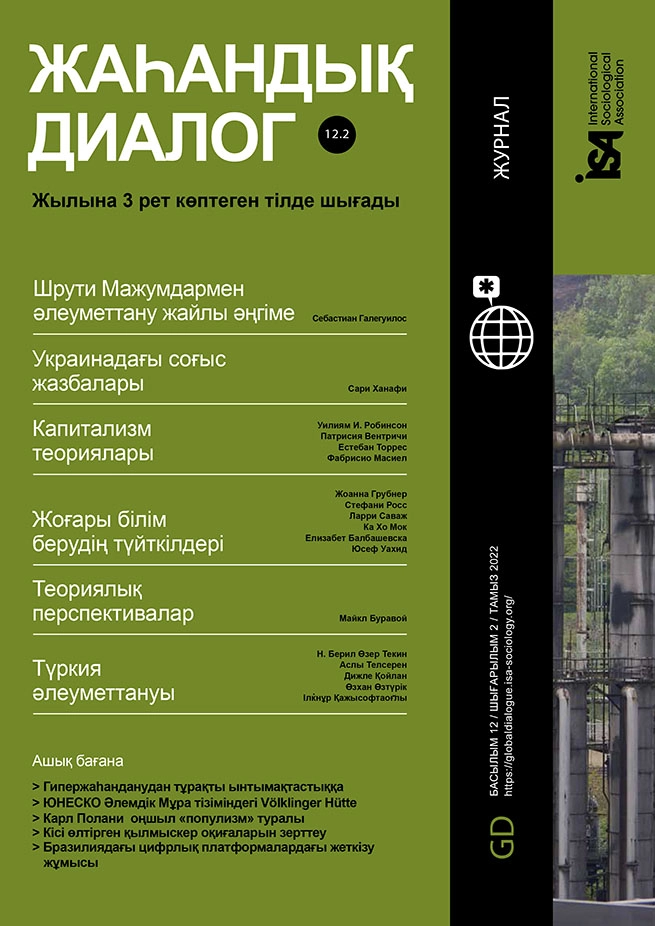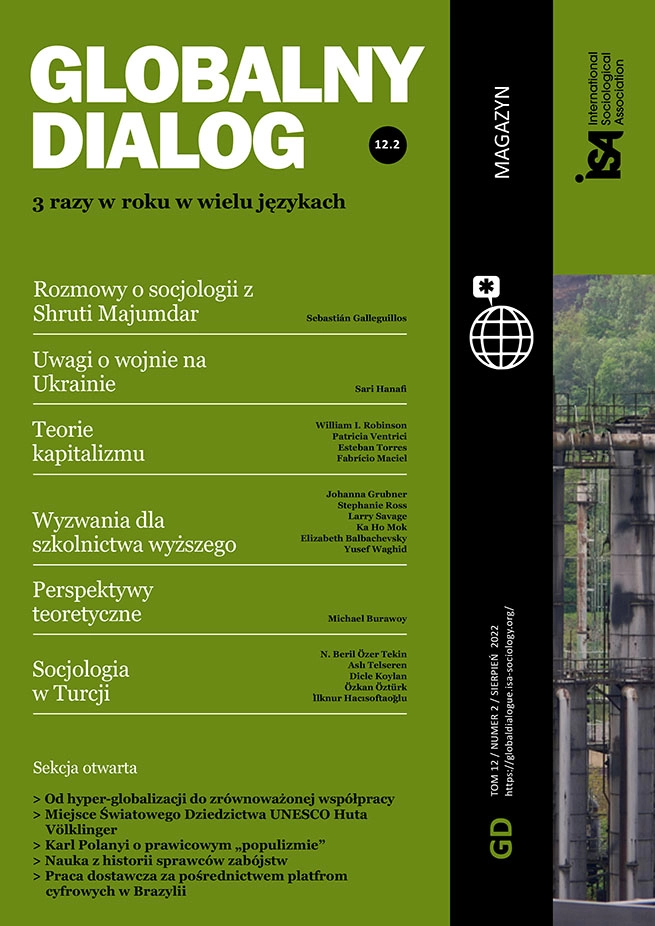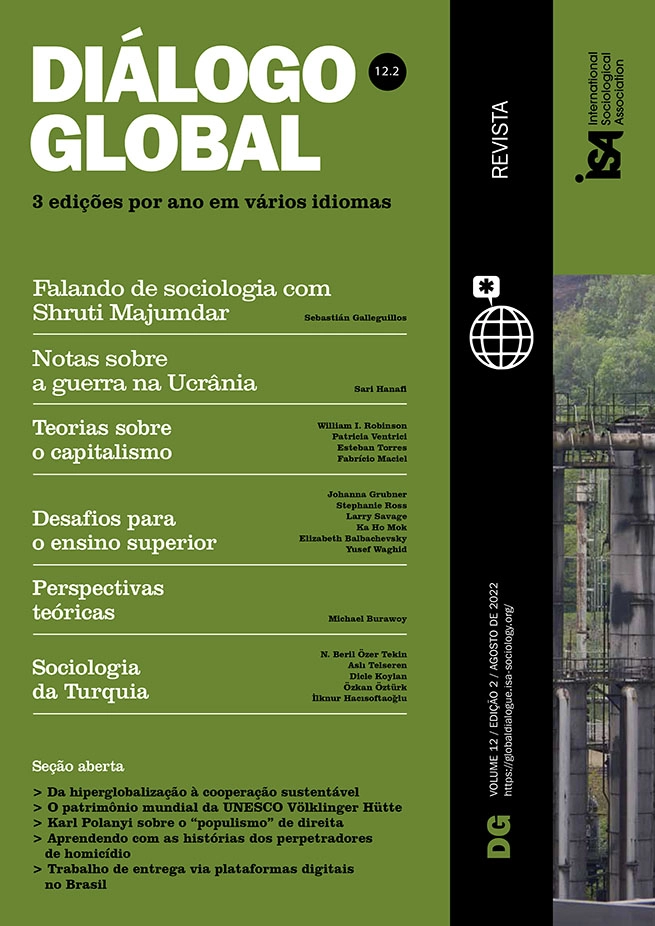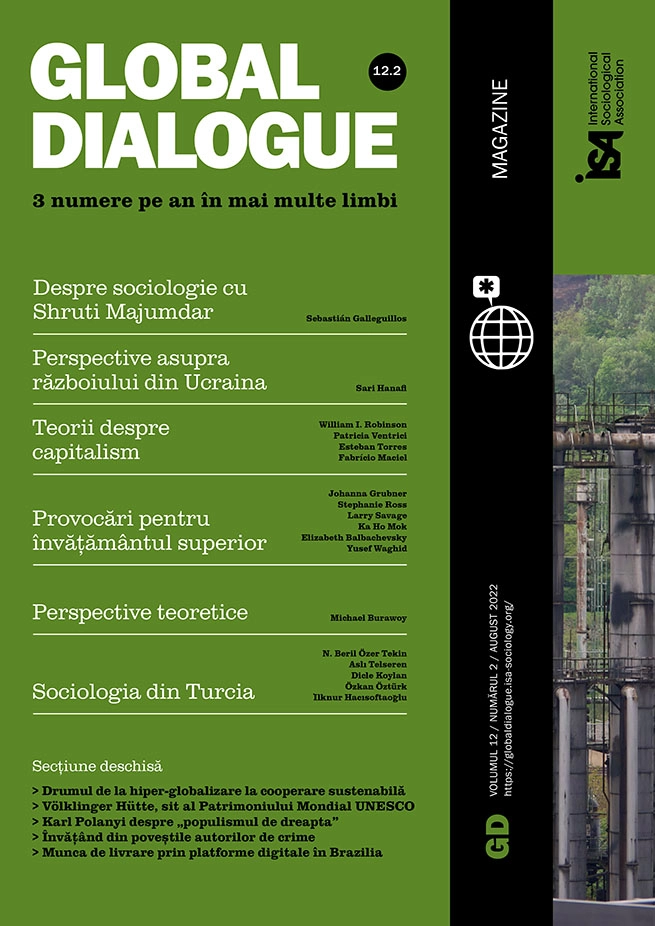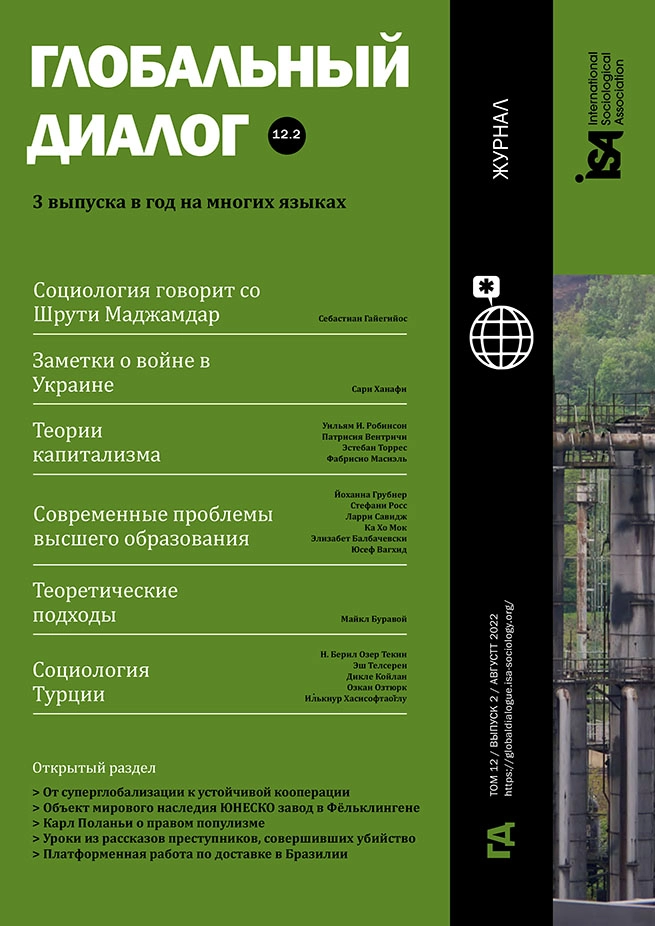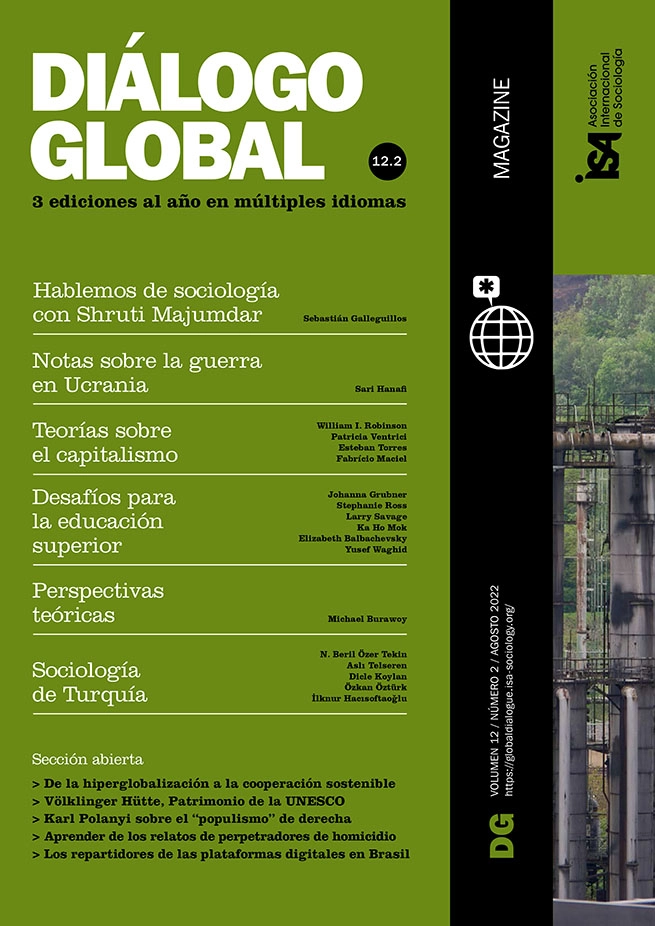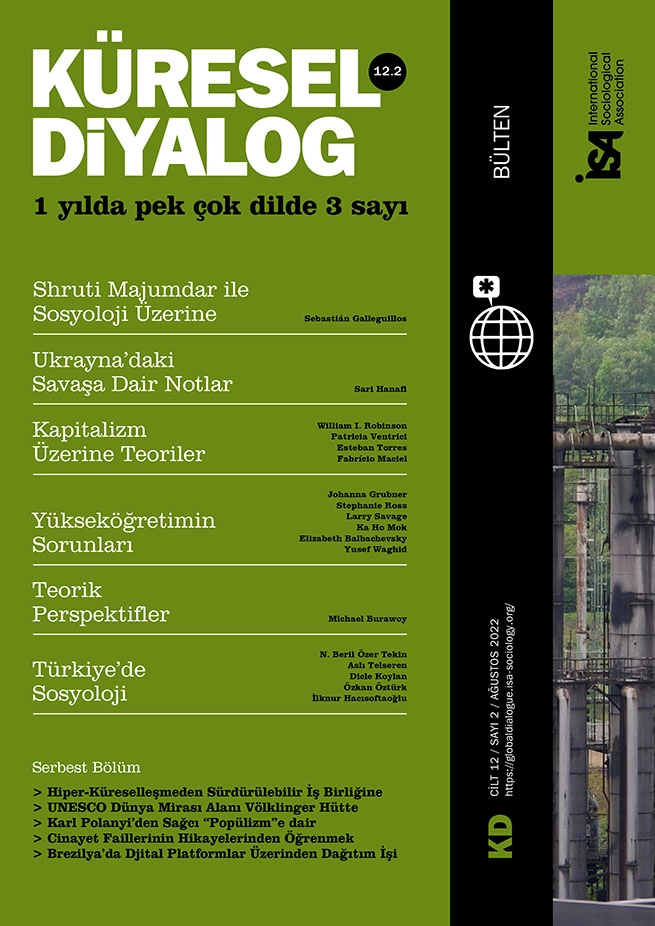Read more about Theories on Capitalism
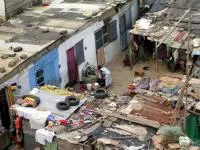
Capitalism and Global Inequality
by William I. Robinson

Platform Capitalism in Latin America
by Patricia Ventrici
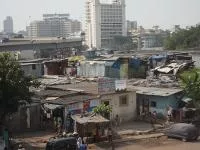
Undignified Capitalism
by Fabrício Maciel
May 29, 2022
To offer an explanation of the progression of processes of social change, it is necessary to pay attention to the historical evolution of a world appropriation game (WAG), which takes place simultaneously in the national, regional, and global spheres of world society.[1] I could define the WAG – or world power game – as a variable field of interactions that is shaped at the intersection between six historical systems: the capitalist system, the state system, the communicational system, the racial system, the patriarchal system, and the natural system. The capitalist system constitutes the central material dimension of world society since the 19th century. This makes it – in simplified terms – the dominant system.
The central transformation that the capitalist system has undergone as a result of the evolution of the WAG is the constitution of a new world class structure. The social classes in question have little to do with the groupings of the first European industrial cities of the eighteenth and nineteenth centuries, paradigmatically conceptualized by Marx and Weber. If the Marxian class structure was defined at its core by a simplified antagonistic relationship between capitalist and working classes, the class structure of today’s world society is defined primarily on the basis of a dialectic between molecular and organic classes. If what was at stake in the former was the ownership of the means of production, what determines the constitution of the latter is in the first instance the source of income.
Molecular classes
The molecular class can be defined as a mode of dependence and economic deployment of the individual, associated in the first instance with his or her income structure. The subject of molecular class is the individual and not the group. At least since the end of the twentieth century, each national sphere of world society has been shaped by a molecular class structure.
In this physiognomy it is possible to distinguish the existence of four types of classes: the profit-dependent class (PDC), the labor-dependent class (LDC), the assistance-dependent class (ADC), and the crime-dependent class (CDC). What defines an individual’s membership of a certain molecular class at any given time is his or her main source of income. If the main source of income changes, the individual is “reclassified.” In turn, each individual not only belongs at a given moment to a certain molecular class but also to a certain stratum of that class.
The class stratum of an individual is defined on the basis of an economic position associated with a volume of income. As of the twenty-first century, it is possible to identify the existence of five class strata in the national spheres of world society. From top to bottom, I call them upper, high, middle, low, and inferior class strata. A person belonging to the upper class stratum is part of the supra-elite, the growing and scandalous universe of the billionaires. The individual who belongs to the high stratum is part of the infra-elite. This pair of top class strata make up the elite field. On the other hand, individuals belonging to the middle, low, and inferior class strata make up the popular field. The latter is a field with important internal differentiations.
Thus, unlike what modern theories of class suggest, class is not an indicator of stratification; every class is stratified and every stratum is a stratum of classes. A molecular class can be realized in more than one stratum and a stratum can bring together more than one class.
Organic classes
If molecular class relations derive from the modes of structuring and interaction between classes of individuals within each national sphere, organic class relations are based on the modes of structuring and interaction between classes of countries and regions in the global spheres. An organic class is equivalent to a national and/or regional structure of molecular classes. The organic class is a mode of subjection and economic deployment of a national system that is defined primarily on the basis of its income structure. By becoming aware of the existence of a world web of organic classes, it becomes possible to move from a generic and singular notion of a capitalist economic system to the idea of an intercapital system. Thus, from my perspective, what we usually call “capitalist system” is a metasystem, a system of capitalist systems in asymmetric interaction, internally differentiated in its form of organization but not in its abstract logic of maximization.
Three paradigmatic types of organic classes interact in the intercapital system: (i) the knowledge-dependent class (KD=informational capitalism); (ii) the industry-dependent class (ID=industrial capitalism); and (iii) the commodity-dependent class (CD=commodity capitalism). In turn, it is possible to recognize the existence of two mutually determining organic class strata: the central and the peripheral. The fact that a sub-region, a country, or a continent belongs to one of these strata reflects its global economic position, which depends on the size of its economy.
Since the mundialization[2] of the intercapital system in the nineteenth century, the KD and ID organic classes have reproduced themselves in the central stratum, while the CD organic class has reproduced itself in the peripheral stratum. Thus, the class of countries or regions is defined on the basis of their double membership to an organic class and a stratum. An important fact to underline is that organic classes define the core of the world materiality of molecular classes. This implies that every individual, or rather all classes of individuals, are recreated as such from a central or peripheral system. Such a localization implies an additional source of material determination, of a supra-individual character. Thus, each class of individual in world society is configured from a double subjection and a double deployment, molecular and organic.
The process of contemporary mundialization that has been expanding since the 1980s is also associated with a growing mundialization of the class structure of the intercapital system. With this expansion, class inequalities ceased to be exclusively inequalities between classes of individuals in the economic structure of the different national societies, but also, centrally, represented inequalities between classes of countries (and regions) in the world division of labor.
It is essential to note that in this new approach molecular classes and organic classes are not considered as actors. Unlike modern social class theory, there is no logic of action inherent in class. Classes of individuals and classes of countries are not social actors, let alone with predetermined interests. At least since Bourdieu this social fact has become evident. Classes of individuals become individual actors when they actually act, and they become collective actors when they create or subsume themselves into companies, states, trade unions, social movements, etc. Social action can in no way be explained without taking this world class structure into account[3].
[1] The differentiation between the “global” and the “worldly” is of central importance here. As I understand it, the global is that singular sphere that is shaped in an expansive or retracted way from each national location of the world society, while the worldly is built from the set of global spheres. More precisely, the wordly is constituted from the set of national, regional, and global spheres (See Torres E., “World Paradigm. A Proposal for Sociology”, Global Dialogue 11.1, https://globaldialogue.isa-sociology.org/the-world-paradigm-a-new-proposal-for-sociology/.)
[2] Expansion of a world society, as distinct from globalization.
[3] This theory of capitalism is developed in my book The Intercapital System: The New Economy of World Society (forthcoming).
Esteban Torres, Universidad Nacional de Córdoba-CONICET, Argentina <esteban.torres@unc.edu.ar>
This issue is not available yet in this language.
Request to be notified when the issue is available in your language.
If you prefer, you can access previous issues available in your language:
